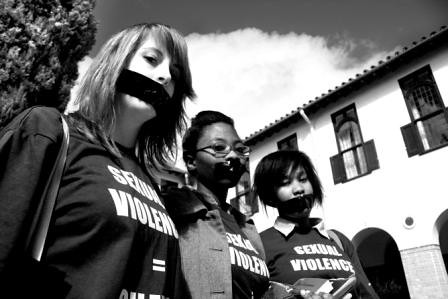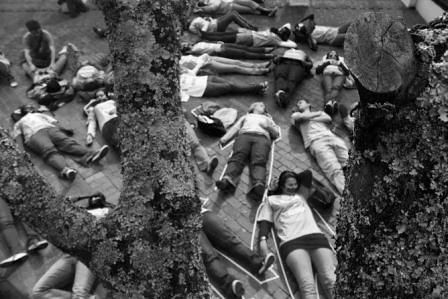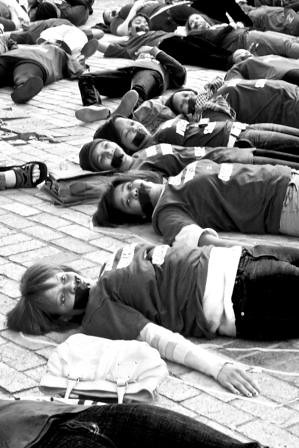By Tracy-Lee Nicol
It grieves me to hear myself complain about the cost of living these days. I imagine those words spilling from the peppermint-breathed mouths of old ladies tutting about how expensive the cat kibbles are, wondering if they can still afford to try their luck at this week’s lotto quick-pick. This thought, however, came seeping into my mind as I cruised the aisles of my nearest blue white and red and realised that my weekly grocery budget (not that great to begin with) got me just about nothing.
Now I’m sure economists would have a lot to say about the matter: inflation, Brent crude over $65 a barrel, petrol costs, global recession etc. At this point it all starts to sound a bit like static, it’s beyond my spectacular mathematical illiteracy. Fortunately, I am not entirely illiterate and I understand what it means when the headlines read “four major store chains under investigation for price fixing”*. Now where do you suppose that leaves the consumer, when we believe there
are only four major chains to choose from and they’ve all decided it’s okay to milk us? “Oh,” they say, “that’s the price of quality, that’s the price of convenience”. See, convenience is one of those delightful, oh so- marketable euphemisms for arse-lazy. At the risk of alienating you, most of us are guilty of it: “I’m much too busy (and self-important) to go to several small stores to find my dinner ingredients like Jamie ‘Pukka’ Oliver on his scooter, and then wash the soil off them”. What you would discover if you took a few extra minutes and perhaps walked off that kept-warm-for-hours pie you had for lunch, is that there exists a fruit and vegetable shop (nation wide) that sells pumpkins the size of your ego for prices I didn’t think existed anymore. And not
just pumpkins, but I need the space to lecture you further so I’ll leave it at that.
See the thing is, while we all continue on our apathetic aisle cruise, the executives, directors and major shareholders say a big “thank you” for the idiotically generous year-end bonuses from the deck of their own pleasure cruiser, while specialist and small businesses go under and local produce jobs follow suit. What many people fail to realise is that we are all major shareholders too, shareholders in our community. When you absently pull an over-priced and oddlylighter-than-last-time bag of dog food off the shelf, do you know that a 20kg bag is available from the SPCA for a fraction of the cost and each R50 goes toward spaying cats and dogs preventing untold neglect, suffering and coercion? For every bunch of veggies you buy at the farmer’s market you’re encouraging local business and jobs, for every bundle of firewood you buy from local sellers you’re helping reduce alien invasive species and preserve water. The list goes on.
Look, I’m not ignorant: people are busy, stressed and tired, but small lifestyle changes can have a huge impact. I’d like to see the major stores continue on their price-hike rampage when tumble weeds drift across their aisles. The key word is lifestyle. Ever tried making bread instead of buying it? Its fun, stress busting, not intensive on the electricity, and its not hard,
we’ve been doing it for a couple of thousand years!
Consuming is not just about how easily you put things into your trolley, it’s about what you put in your body and in your life. When you cook your own food you know how much salt and oil goes in and you by-pass the preservatives, flavourants and other unpronounceables that will eventually result in your heart by-pass. Cooking and shopping can also be sociable and entertaining, not a tedious daily chore – it’s about a mind shift.
So experiment. Mix flavours, try local foods and embrace seasonal produce, Gwyneth swears by it. And you know what? If that bread of yours comes out flat, call it pita bread, you’ll save yourself a fortune skipping the “international cuisine” aisle. Here ends the lecture.
*I’m sure you can figure out whom for yourself and spare me the risk of a defamation lawsuit.










.jpgcrop.jpg)






